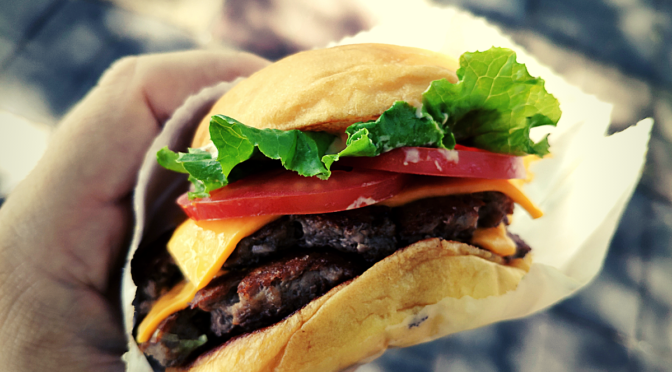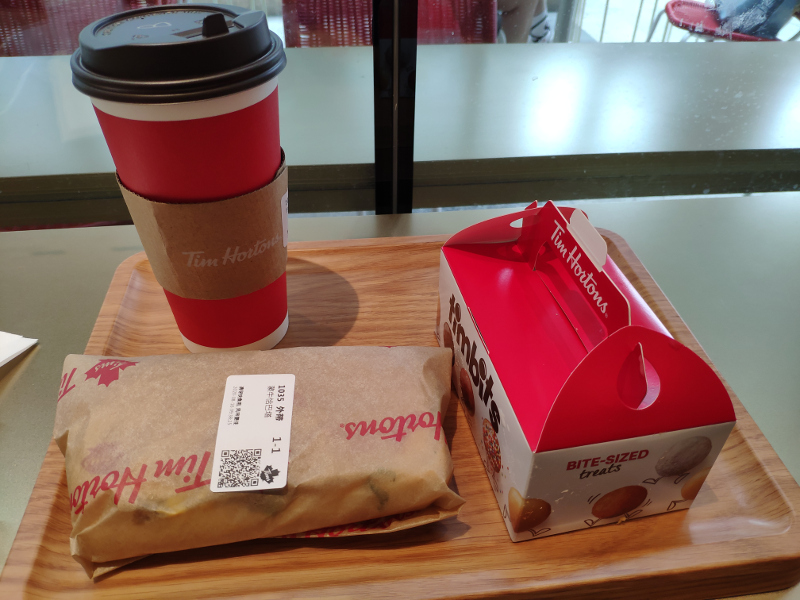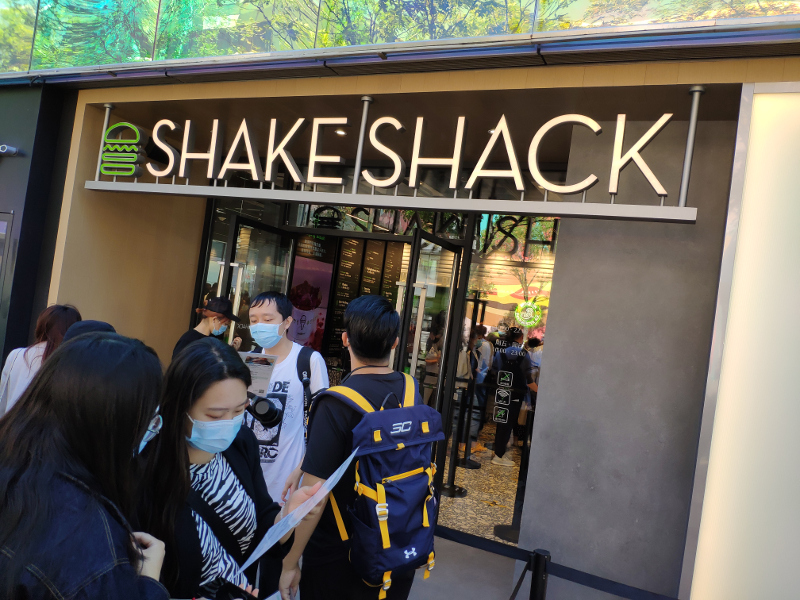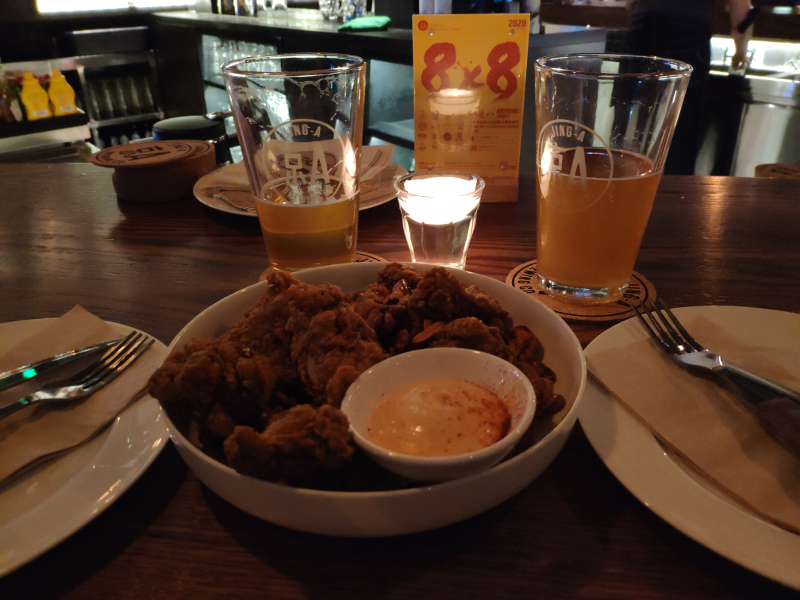For the all hubbub over the trade war between China and the United States, I can’t help but see more foreign companies making their way into China. In particular, the food scene has changed quite a bit in the short six years that I’ve been in this country and in Beijing.
Tims (AKA Tim Hortons), Shake Shack, Taco Bell, craft beers galore, and then the local changes as well, such as Hulu, Freshippo and HeyTea. To be fair, Beijing is never first to receive something from overseas, at least in terms of shops and food. Those things are always deployed or tested in other cities before setting up shop here in Beijing itself.
Tims咖啡, the Chinese subsidiary of the Tim Hortons coffee chain in Canada, only recently opened in Beijing, though it had several stores in Shanghai prior to its arrival. My initial review of the coffee and food was favourable, though the donuts seemed to lack variety and the same consistency as those made in Canada. The best of the bunch, however, are the cake-based chocolate Timbits which are just like what you’d find in Canada. They are entering the larger China market just as homegrown Luckin Coffee is facing financial difficulties after being delisted from the NASDAQ for falsifying sales numbers. That chain, however, still maintains some success here in China.
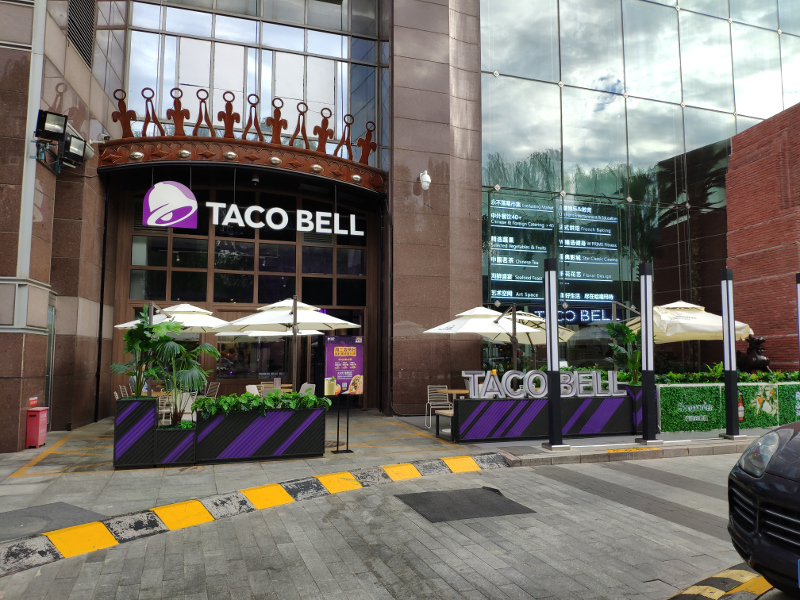
Taco Bell likewise recently opened a store in Liangmaqiao in Beijing, but already has shops in Shanghai. Apparently they had shops in Shanghai back in 2008 but closed them down for some reason. Could the same thing happen again after the Beijing 2022 Olympics? I’ve gone only once and that was enough. It was nothing like what I remember Taco Bell being like, but, I’ll admit, there aren’t many Taco Bells in my home town so it wasn’t a regular stop. In any event, the meat was more like a paste, the cheese tasted like liquid fat and they lacked the small, hand-sized tacos you could cheaply buy by the half dozen or so. They did have beer but, with the number of calories the meal itself amounts to, I don’t know how many people could have a beer with that food.
Shake Shack has finally opened here in Beijing and the line up has barely died down. This one is worth it, however, as the burger and fries that I tried were substantial. I can’t say I’d go very often given that it was very greasy, but I can understand the appeal. It took ten minutes to get into the store and then another ten minutes to get my order. With a menu of burgers, fries and shakes, I can see me going back to try something else but, again, not very often.
The craft beer scene in Beijing and around China has continued to boom. It seems the desire to create the hoppiest of hoppy beers has done down a little bit and sours and other flavours are making their way into the menus. Jing-A recently opened a location in GuoMao which is substantially closer to me than their other locations, and the food and beer is just as good. the location was actually selected for Stone Brewing but, due to the COVID shutdown, they couldn’t make it work. Further, at the recent Burger Festival in Beijing, there were several other craft beers on offer that were either China-made or partnerships of some sort.
There have been other openings, too, as Slowboat has opened another location at Maizidian, from which I’ve done a live episode from before. while Great Leap has started to move outside of Beijing itself with a shop in Chengdu. Those are the “bigs” that I know of that originated in Beijing, but there are others in other cities.
There are, however, lots of places that boast “craft beer” in English in what seems to be an attempt to either woo unknowing foreigners or unknowing Chinese people who want to try. These places usually have imported beers and charge a hefty premium for them. It’d be better to visit a place like April Gourmet or Cheers to browse their selection of imports instead of paying these high prices.
With that, from my understanding, one of the craft beers has gone global, which would be Boxing Cat Brewing from Shanghai. They are a Chinese original but were bought out by Anhauser-Busch a few years back. I’m not sure if they’re available overseas but it would make sense given that they have access to AB’s distribution network.
There are some other additions to the city’s food services: notably Hulu, which is similar to Tribe Nutrition’s idea of healthy, quick meals. They do meal prep and offer subscription services to deliver meals to you around the city, at work or at home.
And then there is Freshippo, which is probably the most popular of the additions as of late. Freshippo is really just a supermarket like any other but, unlike other supermarkets, it relies on picking orders for you and delivering them. It is this company’s plastic bags you’ll see being delivered to a lot of places, especially to apartment complexes. The one other thing this supermarket does that many others don’t is pride itself on the freshness of its food. From seafood to meats to milk, the company supposedly offers the freshest food when compared to other retail markets. It’s not only fresh, but it’s much more sanitary than going to the smaller, farmer-markets that set up shop on weekends around town. I’ve never used them, opting to walk to the available markets down the road and re-use my shopping bags, but I see their products being delivered all the time.
So, in the end, there seems to be a few more openings of non-Chinese, and mostly North American, restaurants opening up, many of which are owned by YUM! Brands which buys licenses for these chains and then brings them into the country.
And despite the current, seemingly never-ending pandemic, it doesn’t look like people are afraid to go out. Are places completely full? No, but they are busy either with in-store guests or with delivery orders.
With that, we’ll see what’s next for Beijing’s food scene as the pandemic clears itself up and winter sets in for the next six months.
